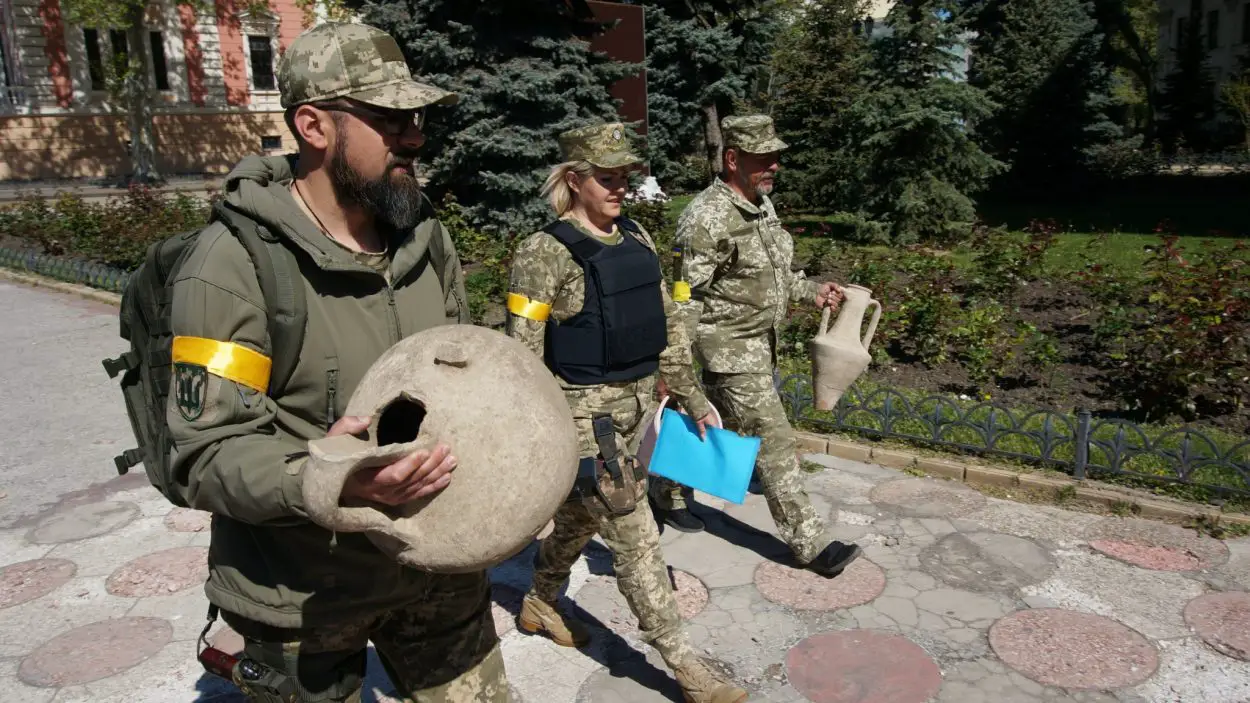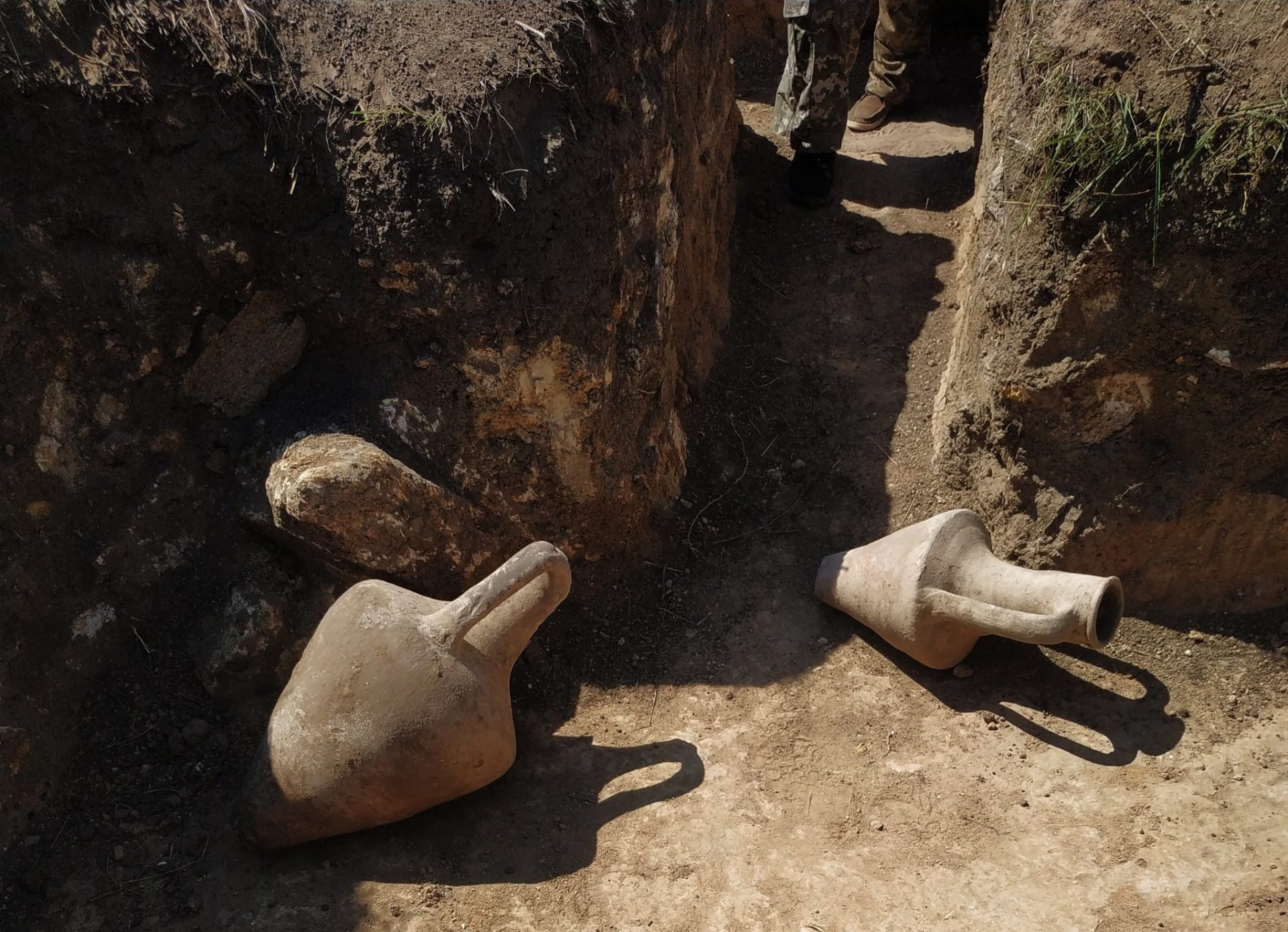Soldiers from the Ukrainian 126th Territorial Defence have discovered ancient amphorae whilst digging defences in Odessa in preparation for further Russian aggression.
Amphorae are ancient containers used for the transportation and storage of products, both liquid and dry. They are mainly associated with the Ancient Greek, Roman and Byzantine periods, however, the use of amphorae can be found as far back as the Neolithic period.
The discovery was made whilst digging ditches and defences to protect Odesa, the third most populous city in Ukraine and a major seaport/transport hub on the Ukraine’s southern coast. The amphorae date from around the 3rd to 4th century AD, during which time Odesa was a Roman settlement known as Odessus that developed from a Greek colony.

Due to the current situation in Ukraine, archaeologists are unable to document the site because of the ongoing aggression by Russian invaders. However, members of the 126th Territorial Defence carefully recovered the amphorae along with several pieces of ceramics and transported them for preservation at the Odessa Archaeological Museum. The Ukrainian 126th Territorial Defence are the military reserve of the Ukrainian armed forces as part of the Operational Command South.
Yana Suporovska, a journalist from Kiev said: “Ukrainian soldiers dug trenches and found ancient amphorae. They have already been transferred to the museum, we are not Russians, we preserve our history.”
Header Image Credit : 126th Territorial Defence





